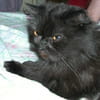
Conversion VC++6.0 vers VB6.0

cs_IcebergMan
Messages postés
41
Date d'inscription
vendredi 11 février 2005
Statut
Membre
Dernière intervention
11 décembre 2008
-
10 déc. 2008 à 17:59
cs_IcebergMan Messages postés 41 Date d'inscription vendredi 11 février 2005 Statut Membre Dernière intervention 11 décembre 2008 - 11 déc. 2008 à 11:54
cs_IcebergMan Messages postés 41 Date d'inscription vendredi 11 février 2005 Statut Membre Dernière intervention 11 décembre 2008 - 11 déc. 2008 à 11:54
A voir également:
- Conversion VC++6.0 vers VB6.0
- Tableau octet conversion ✓ - Forum Delphi / Pascal
- Vb6.0 - Forum Visual Basic 6
- Vb6.0 - Forum Visual Basic 6
- Tableau conversion fahrenheit celsius ✓ - Forum PHP
- Incrementation automatique en vb6.0 - Forum Visual Basic 6
3 réponses

BruNews
Messages postés
21040
Date d'inscription
jeudi 23 janvier 2003
Statut
Modérateur
Dernière intervention
21 août 2019
10 déc. 2008 à 18:16
10 déc. 2008 à 18:16
Normal que tu ne trouves pas de convertisseur C vers VB, ça n'existe pas.
ciao...
BruNews, MVP VC++
ciao...
BruNews, MVP VC++

cs_IcebergMan
Messages postés
41
Date d'inscription
vendredi 11 février 2005
Statut
Membre
Dernière intervention
11 décembre 2008
11 déc. 2008 à 09:44
11 déc. 2008 à 09:44
BruNews,
je te remercie pour l'information. Je vais me renseigner pour trouver des tableaux de conversion de déclaration de type, de fonctions du VC++ vers VB6.0.
Bonne journée,
Ice.
je te remercie pour l'information. Je vais me renseigner pour trouver des tableaux de conversion de déclaration de type, de fonctions du VC++ vers VB6.0.
Bonne journée,
Ice.

cs_IcebergMan
Messages postés
41
Date d'inscription
vendredi 11 février 2005
Statut
Membre
Dernière intervention
11 décembre 2008
11 déc. 2008 à 11:54
11 déc. 2008 à 11:54
Yep, j'ai 2 fonctions que je n'arrive pas traduire de VC++6.0 vers VB6.0. Pouvez-vous m'aider svp.
Les voici :
void CTestDlg::ConvertBinaryToString (CString& String,
void* pBinary,
int Length,
bool bHexData)
{
union
{
void* pBinary;
LONG* pLong;
BYTE* pByte;
} Data;
TCHAR szValue[16];
int Inx;
Data.pBinary = pBinary;
for (Inx = 0; (Inx < Length); Inx++)
{
// convert binary value to string value:
if (bHexData)
_stprintf (szValue, _T("%02x"), Data.pByte[Inx]);
else
_stprintf (szValue, _T("%u"), Data.pLong[Inx]);
if (Inx < (Length - 1))
_tcscat (szValue, _T(","));
// add to string:
String += szValue;
}
}
int CTestDlg::ConvertStringToBinary (void* pBinary,
int Length,
const TCHAR* szString,
bool bHexData)
{
union
{
void* pBinary;
LONG* pLong;
BYTE* pByte;
} Data;
TCHAR* pNextData;
int Inx;
Data.pBinary = pBinary;
for (Inx = 0; (Inx < Length); Inx++)
{
// skip non numeric characters:
while ((*szString != _T('\0')) && (! _istalnum (*szString)))
szString++;
// test end of string:
if (*szString == _T('\0'))
break;
// convert string value to binary value:
if (bHexData)
Data.pByte[Inx] = (BYTE) _tcstoul (szString, &pNextData, 16);
else
Data.pLong[Inx] = (LONG) _tcstoul (szString, &pNextData, 10);
if (szString == (const TCHAR*) pNextData)
break; // -> invalid value
szString = (const TCHAR*) pNextData;
}
return (Inx); // -> number of converted values
}
Les voici :
void CTestDlg::ConvertBinaryToString (CString& String,
void* pBinary,
int Length,
bool bHexData)
{
union
{
void* pBinary;
LONG* pLong;
BYTE* pByte;
} Data;
TCHAR szValue[16];
int Inx;
Data.pBinary = pBinary;
for (Inx = 0; (Inx < Length); Inx++)
{
// convert binary value to string value:
if (bHexData)
_stprintf (szValue, _T("%02x"), Data.pByte[Inx]);
else
_stprintf (szValue, _T("%u"), Data.pLong[Inx]);
if (Inx < (Length - 1))
_tcscat (szValue, _T(","));
// add to string:
String += szValue;
}
}
int CTestDlg::ConvertStringToBinary (void* pBinary,
int Length,
const TCHAR* szString,
bool bHexData)
{
union
{
void* pBinary;
LONG* pLong;
BYTE* pByte;
} Data;
TCHAR* pNextData;
int Inx;
Data.pBinary = pBinary;
for (Inx = 0; (Inx < Length); Inx++)
{
// skip non numeric characters:
while ((*szString != _T('\0')) && (! _istalnum (*szString)))
szString++;
// test end of string:
if (*szString == _T('\0'))
break;
// convert string value to binary value:
if (bHexData)
Data.pByte[Inx] = (BYTE) _tcstoul (szString, &pNextData, 16);
else
Data.pLong[Inx] = (LONG) _tcstoul (szString, &pNextData, 10);
if (szString == (const TCHAR*) pNextData)
break; // -> invalid value
szString = (const TCHAR*) pNextData;
}
return (Inx); // -> number of converted values
}


